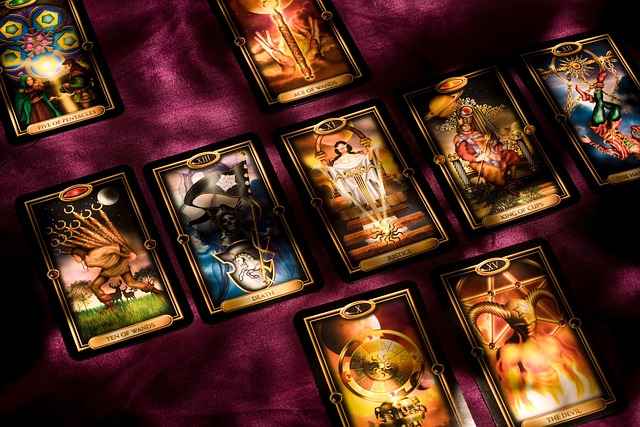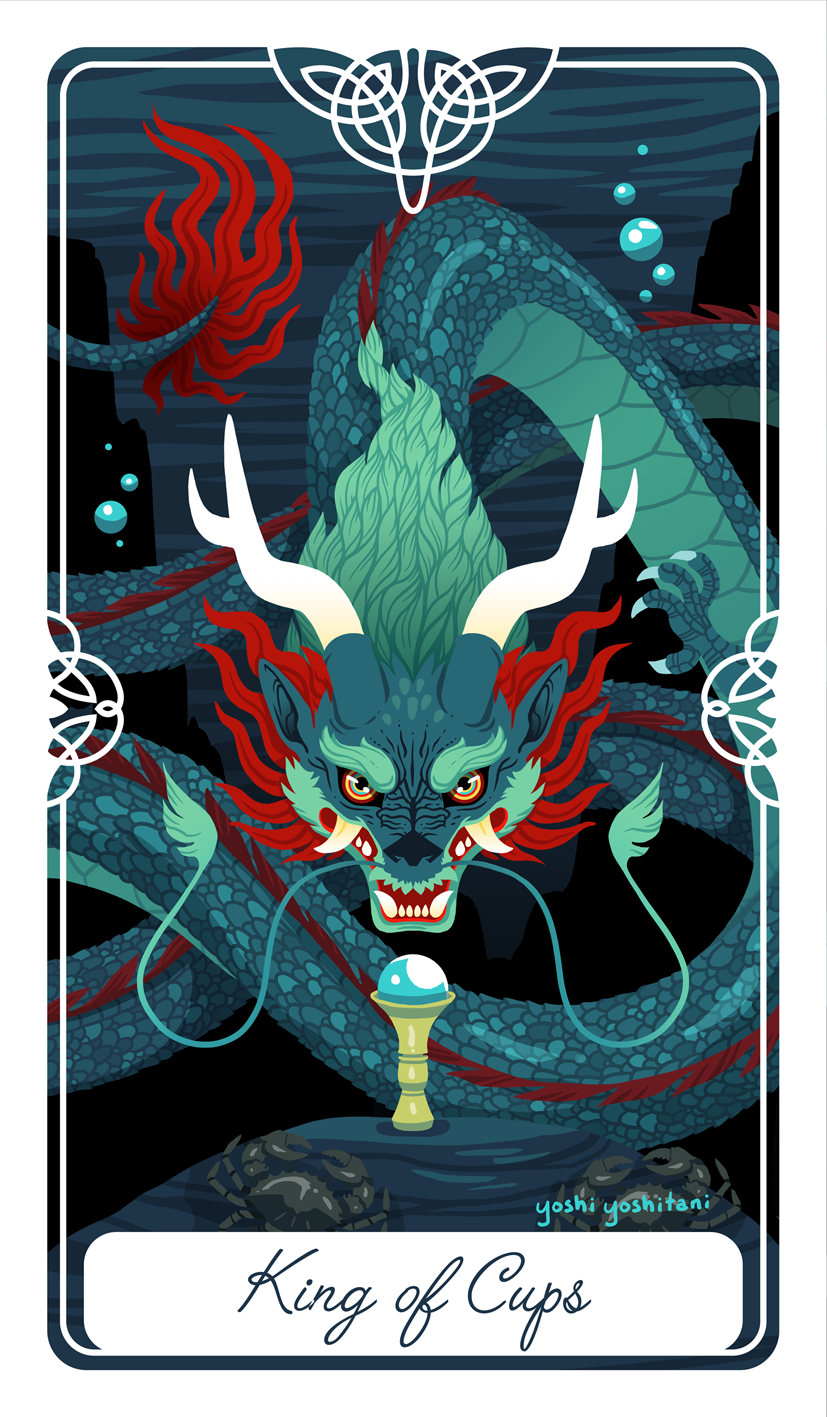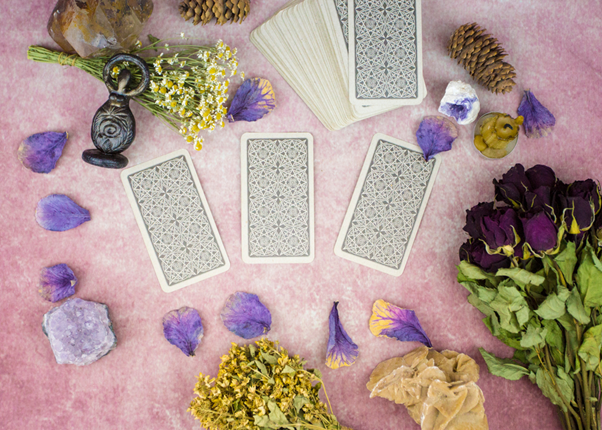
There are many ways to learn how to read tarot cards. You will need to be able use your intuition and have a solid understanding the symbols of the tarot card deck. You will also need practice. The first step to learning how to read tarot cards is to get a tarot card reference. Next, practice and create a positive energy field.
Working as a Tarot Card Reader
You can give advice to clients who have complex issues and need a detailed reading. To be more accurate you will need to know the basics of how the cards function. The cards can also be used to predict the future. Tarot readings can also warn you of bad events, so that you can prepare for them.
Conducting a reading requires that you shuffle a deck, then arrange the cards in a spread. This spread can include any number of 10 cards or 24 cards. It will also help you answer a question.

Get a tarot card reference
It can be helpful to understand the meaning of each card when you learn to read tarot decks. It can be helpful to know the meanings and terms of tarot decks so you can answer difficult questions. You can also use a tarot reference to help you understand the meanings of the tarot cards. Tarot cards references are important when improving your reading skills. They will help you determine which cards you should use for which questions.
There are many books that can help you understand the meanings, and symbols, of the Tarot cards. Many of these books will include small tarot cards references, which simplify the meanings of each of the cards into a few words. It is important to remember that the Tarot is an interpretive tool. To interpret it, you will need to be able to construct your own idioms.
You can learn to read the tarot card.
You can only become a tarot card reader by practicing. Reading tarot decks will improve your ability to see the big picture and increase your intuitive abilities. It is important not to make assumptions about the meaning of tarot card. There are multiple layers to tarot cards and your interpretation may differ from that of others.
Learning the meanings of each card is the first step to reading tarot cards. After you have studied the meanings of each card, practice reading the tarot in real conversation. You will be able to understand and connect the cards. You can improve your skills by practicing as much as you like.

Develop a positive energy field
One of the best ways to become a tarot reader is to develop a positive energy field. This energy field will help you understand the meaning of the cards, and to help others. This field helps you to connect with others. It can also be used to create goals and heal, or practice mindfulness. It can help you connect to your intuition and the cards' energy by creating a sacred area for your readings.
A tarot reader will not be able to interpret your information.
Tarot card readers may be able to give you a psychic reading. However, it is important not to reveal too much personal information. Even if you are interested in their advice, make sure they are reputable and trustworthy. If they provide too much information, they may exaggerate their capabilities or make unreliable predictions. Watch out for anyone who is attempting to exploit your emotions or makes untrued promises to you.
Tarot is a mysterious device, with inherent powers that remain largely unknown. Explanations that are too detailed can reduce the mystery and suspense in the reading. The same way that you might tell a friend how to move a Ouija board planchette, giving too much information can make it less exciting and intrigue the reader.
FAQ
What are collection hobbies?
The most sought-after collections are books and movies, music, comics as well as comics, videos games, sports equipment, toys, and others.
You can also collect stamps, coins and cars as well as dolls, action figures, figurines, art supplies, kitchen utensils, jewelry and watches as well...
You get it?
How can I find a hobby for myself?
When you first start your journey into finding a hobby, you may feel like you've got nothing to choose from.
You're probably thinking, "I'm not very artistic," or "I'm terrible at sports," or maybe even "I don't know anything."
However, it is likely that you already have a lot to draw on when searching for a hobby.
It's not that you don’t realize it yet.
Take a look at the contents of your home. How many things do you own?
Do you have any old toys lying around that could be used?
Maybe you have a collection of books or magazines.
Perhaps you have always wanted to be a chef.
Or maybe you'd really like to start playing guitar again.
Whatever it is you're interested in, you can make it a hobby.
The secret is to remember that you already have plenty to draw on.
Once you have done that, you will be able choose a hobby that suits your lifestyle.
What is the cost of a hobby?
The only thing that costs less than a hobby is time. If you're serious about it, however, it may take you many years to reach your goals.
But there is one thing you can do to help yourself. It's called "passion." If you are passionate about what you do, it will be easier to work hard and make progress.
You may become addicted to the activity once you have put in enough hours. Here is the fun part! Because you are enjoying what you are doing and are constantly improving. By the end of the year you'll have probably made a lot of progress.
Do not worry about the time it takes. Just go ahead and try. You may be surprised!
What are some great hobbies?
Your favorite hobbies are ones you enjoy. It will be easier to continue doing what you love if you are passionate about your work. You will have a reason when you feel sick or tired.
Our hobbies include painting, crafts, photography and cooking.
You might also consider volunteering at a local charity shop or animal shelter, children’s hospital, hospice, elderly home, school, community centre, church, and other places.
Suppose you're looking for something more adventurous. Take up skydiving or rock climbing, parasailing, parasailing and paragliding.
There are many unique ways to spend time in the outdoors, whether you're looking for adventure or a more traditional way to do it. These include caving.
Statistics
- The Role of the Mind in Sex, Dating, and Love: Men in the “humor” condition received phone numbers from 42.9% of the female participants and were refused 57.1% of the time. (time.com)
- Much of this decline reflects the fact that teens are less likely to work today than in the past; among employed teens, the amount of time spent working is not much different now than it was around 2005. (pewresearch.org)
- The intensity of the dialogue partners' bond at the end of the forty-five-minute vulnerability interaction was rated as closer than the closest relationship in the lives of 30 percent of similar students. (time.com)
- I am 100% biologically a woman (discover.hubpages.com)
- Studies show that just six minutes of reading can reduce stress levels by 60 percent. (oberlo.com)
External Links
How To
How to learn a musical Instrument
There are many methods to learn music. You could go to a school or buy a book. You could also take lessons from an experienced musician, watch videos online, and so on. Here are some tips and techniques to help you learn if your goal is to create your own learning path.
-
Find something you are interested in. If you don’t enjoy any of the instruments that you see, you might consider trying another one. It's difficult to take up a hobby if you don’t love playing the instrument.
-
Be patient. Learning anything new takes time. You don't have to learn everything in one go. Instead, keep practicing every day.
-
Regular practice is important. Even when you feel tired, continue practicing. This will ensure you don't forget what lessons you have just learned.
-
Choose a good place to practice. The ideal place to practice is one that is quiet and won't be disturbed by anyone else. It is important to keep the room clear of distractions. Avoid loud music, for example.
-
Have fun! Music is meant to be enjoyed. It is important to have fun when practicing. You will be motivated to do more if you have fun.
-
Set goals. You will know what you need to do if you have goals. This will make it impossible to fail.
-
Keep track of your progress. Note down your successes and mistakes. This will help you to improve your performance over time.
-
Take breaks. Sometimes it is enough to just stop and think. It is a good idea to take breaks so you can think about everything.
-
Ask questions. Ask for help if you are unsure or have questions about certain aspects of the instrument. They may be willing to help.
-
Learn by listening. Musicians often listen to music they like and try to imitate it. This allows them to grasp the basic concepts of the song.
-
Read books. Read books to learn more than just watching videos or learning from classes. Books also contain information that you cannot find elsewhere.
-
Join a band. Playing with others will force you to practice more. Plus, you will find people with similar interests to you.
-
Watch tutorials. Tutorials are short videos that explain various topics in great detail. These videos typically focus on one aspect of the instrument. Tutorials can be helpful in understanding difficult parts of an instrument.
-
You can try different methods. Some people prefer to learn through lectures, whereas others learn better by reading. Find what works best for your learning style.
-
Practice makes perfect. Nobody becomes an expert overnight. You must work hard to become proficient enough to do well.
-
Begin a group of musicians. Listening and learning from others can help you to learn faster.